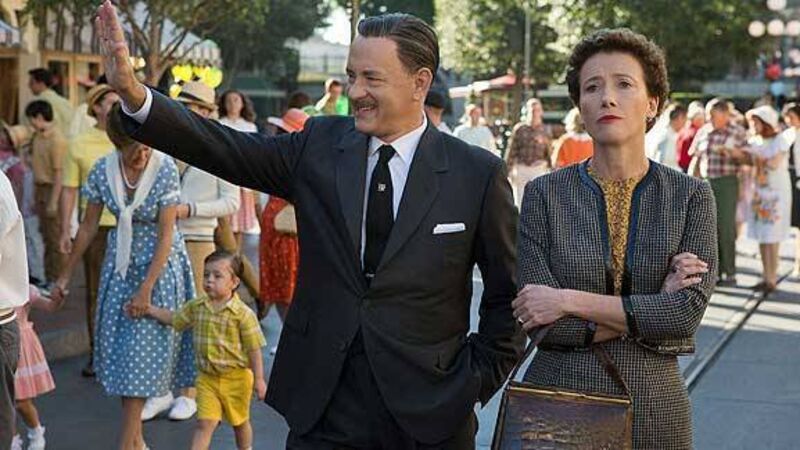Movie reviews: Saving Mr Banks

Perceived wisdom has it that the book is always better than the movie it inspires, although fans of Mary Poppins (1964) may beg to differ. In author PL Travers (Emma Thompson) is invited to Hollywood to consult with Walt Disney (Tom Hanks) and his team on an adaptation of her first novel, Mary Poppins. The process is not a smooth one; indeed, Travers, who considers Disney’s movies crowd-pleasing pabulum, creates as many obstacles as possible. She doesn’t like musicals, the characters are too cutely rendered, and she’d rather stick pins in her eyes than allow animated penguins despoil her beloved story. The culture clash between Travers, an insufferable English snob, and the easy-going, avuncular Disney provides plenty of humour in John Lee Hancock’s film, while at the same time offering an acerbic commentary on the business of making movies and the creative tensions involved in remaining faithful to source material while adapting it to an entirely different storytelling medium. What gives Saving Mr Banks its emotional heft, however, are the extended flashbacks to PL Traver’s youth in Australia’s Outback, when Travers was known as Ginty (Annie Rose Buckley) and was encouraged to let her imagination run riot by her feckless father, Robert (Colin Farrell). Hancock, working from a script written by Kelly Marcel and Sue Smith, emphasises the importance of the father-daughter relationship in Travers’ evolution as an author, and implicitly links that relationship to the one that develops between the adult Travers and the father-figure of Walt Disney. The performances are strong across the board — the impressive cast also includes Paul Giamatti, Jason Schwartzman and Rachel Griffiths — although it’s the dynamic between Farrell and Buckley that threatens to steal the show.
adapted from the novel of the same name by Stephen King and directed by Brian De Palma, is one of the great horror movies. Kimberley Pierce’s remake of Carrie (16s) is a largely faithful retelling of the story, updated for a new generation and starring Chloe Grace Moretz in the title role. Considered a ‘cancer’ by her ultra-religious mother (Julianne Moore) when she was conceived, and sheltered away from the realities of the world as she grows up, the teenaged Carrie is horrified when she has her first period in the shower at school after a PE class. Humiliated by her classmates, Carrie withdraws into herself, only to discover that she now possesses the potentially destructive power of telekinesis. What follows is a poignant tale of painful growth, vicious betrayal and a cataclysmic revenge, in which the remake’s contemporary touches — Carrie’s degradation is recorded on a mobile phone, for example, and goes viral via Facebook — serve the story well. Moore is suitably over the top as the mother deranged by a self-loathing exacerbated by a too literal reading of Biblical scripture, while Moretz is in compelling form as a shy girl on the cusp of womanhood. She is less persuasive than Sissy Spacek was in the role when Carrie finally unleashes her powers in an orgy of retribution, but for the most part this is a remake that manages to do justice to the original version while also refreshing the story for a new generation.











